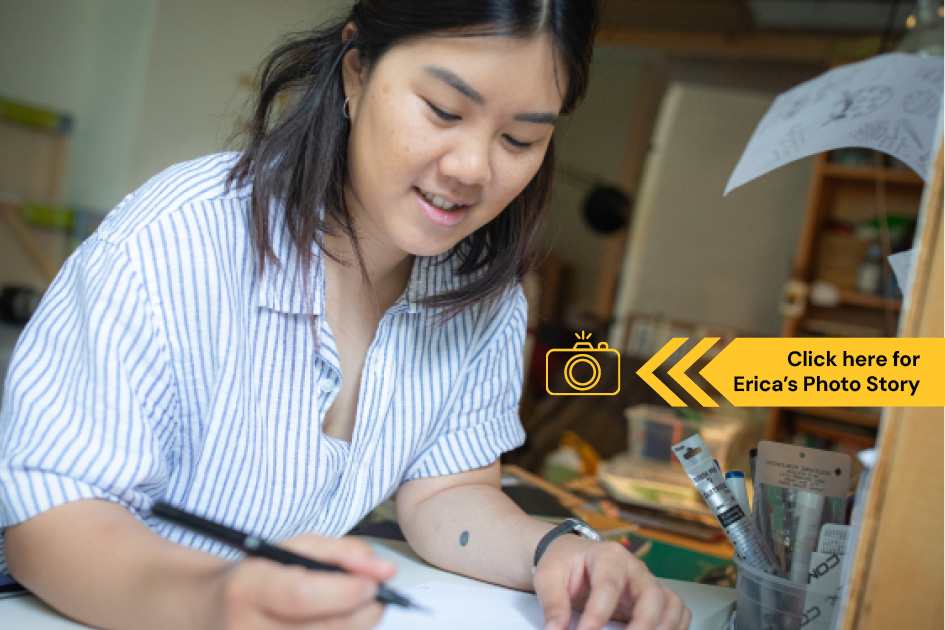Erica Isomura
Program & Degree
Why did you choose to complete your graduate studies in your program at the University of Guelph?
I chose to complete my graduate studies in Creative Writing at Guelph because of the generous funding opportunities and esteemed faculty/sessional instructors. Since the program is based at Guelph-Humber campus in Toronto, ON, I was also excited for the opportunity to connect with the Toronto literary arts community.
A bit about your path...
Like many, I shoulder complex stories of family and identity. For more than half my life, my father did not talk about our Japanese Canadian internment history, which resulted in a loss of home, livelihoods, language, and family. Meanwhile, stories from my mother's lineage were shared more readily as immigrants who overcame struggle by establishing businesses in Vancouver’s Chinatown and fighting for Chinese Canadian enfranchisement. In my family, some stories are easier to share than others. My aspiration to tell difficult stories (often incited by matters of gender, race, or queerness) is something that sets me apart and, I hope, draws readers in.
Since my time as an emerging writer, I'm grateful to have been mentored by some incredibly talented and hardworking authors in Canada including Kevin Chong, Hiromi Goto, Sachiko Murakami, and Teresa Wong. My time at Guelph was fundamentally shaped by MFA program coordinator Canisia Lubrin and my graduate supervisor Kyo Maclear.
A bit about the work you are doing here...
As a non-fiction writer, poet, and interdisciplinary artist, I am excited for what creative writing and storytelling is capable of. My undergraduate studies introduced me to the disciplines of political ecology, ethnobotany, and cultural geography. Through my creative writing, I was able to bring ideas from these branches of knowledge together in my thesis work. There are so many possibilities of form in creative writing, whether fiction, non-fiction, poetry, drama, or hybrid work spanning multiple genres. A moment that stands out to me in this program is when I realized that I could develop a project that not only incorporated the written word, but also visual imagery (through drawings, photography, and mixed-media art) to articulate my story. Not only did this approach make the work more expansive, but it was also a way to make the project more accessible to a wider audience.
How do you think your work can potentially improve life?
I had the opportunity to share my work with the public, and help others to write their own stories by facilitating writing workshops. I believe this work improves overall wellness by enabling individuals to connect with each other on a social level, express themselves, and build a stronger sense of mental and emotional wellness.
I see much potential for my work to help others feel seen (especially those who also struggle to grasp their family history), feel less isolated, and gain a better understanding of BC's layered history, particularly of Japanese and Chinese ethnic groups in Canada. I hope this understanding will encourage more people to learn place-based histories of the places where they live and/or where they grew up, and its significance to both the present-day and future.
Tell us something about you, beyond being a grad student.
I was born and raised in BC! I love the ocean and swimming in open bodies of water.
